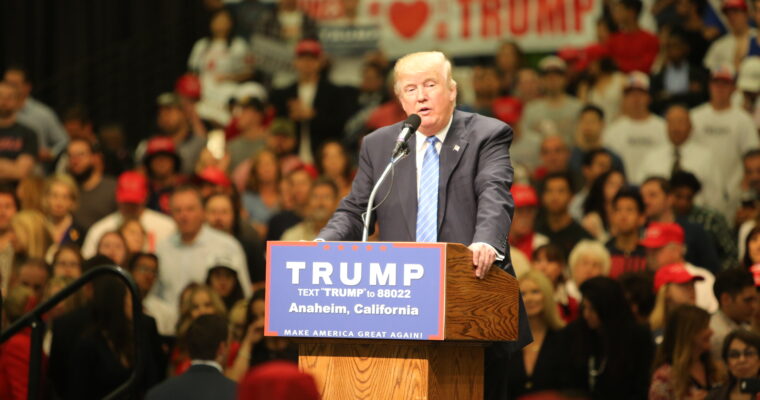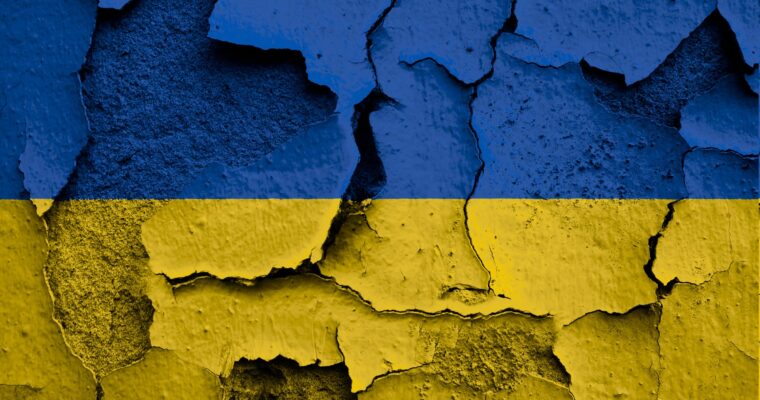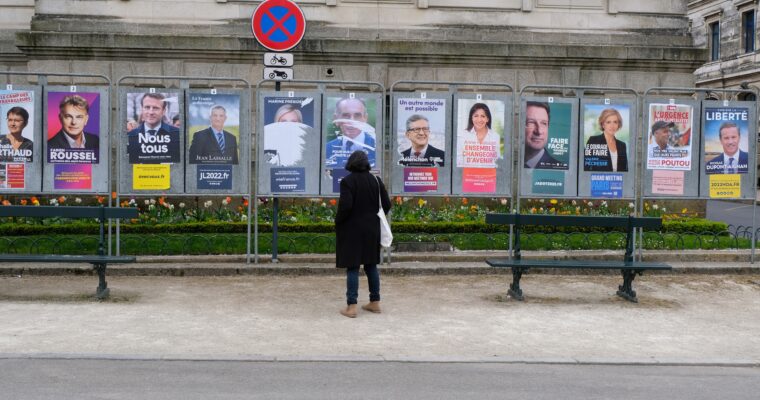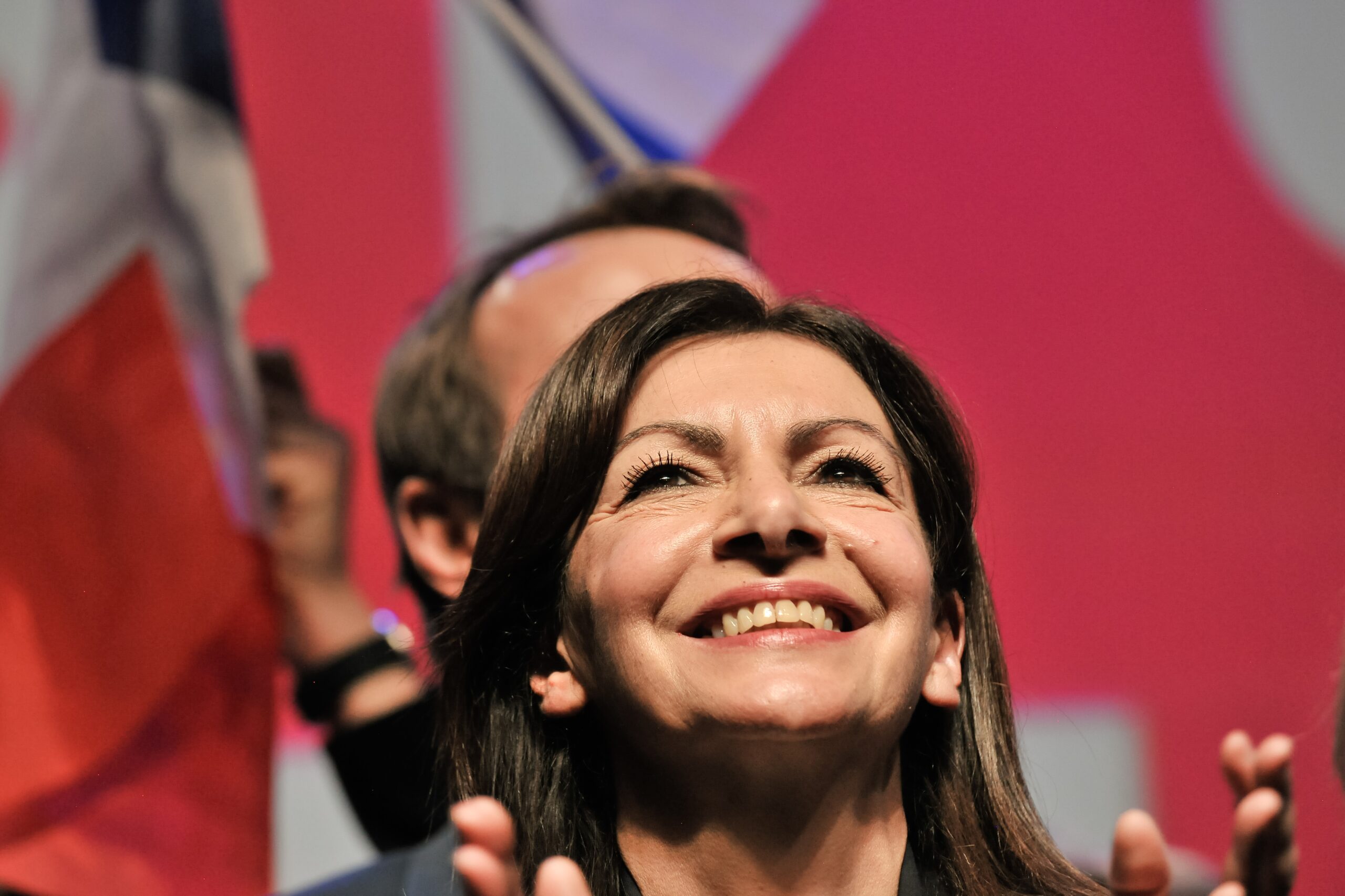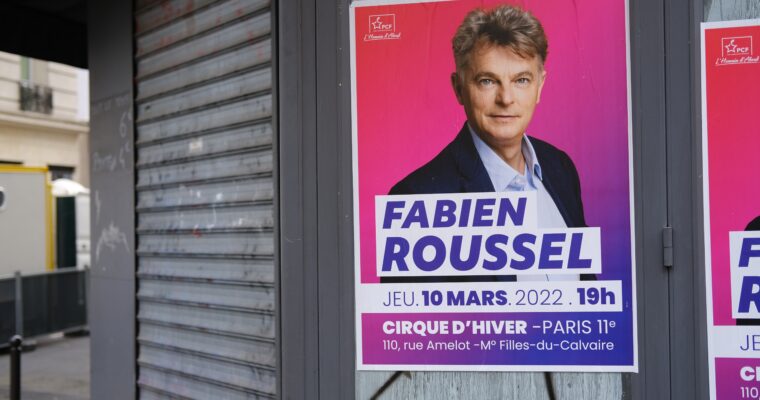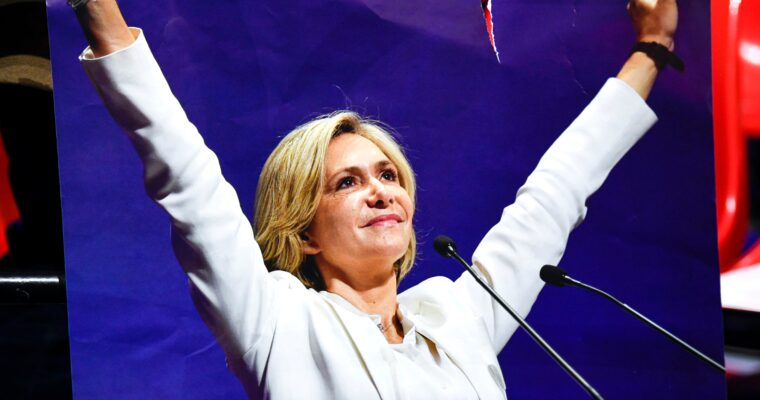The last few days in France were relatively quiet: the candidates were doing their final events, and the polls and news coverage stopped for a period lasting from Saturday midnight to 8 pm Sunday, as required by law.
The French voted on Sunday; by 8 pm the networks were able to report the result.
From the BFMTV Livestream:
The second round is a rematch of 2017, with Macron against Le Pen, with Macron at about 28.10% of the votes, and Le Pen at 23.30%; the numbers changed slightly throughout the evening, but it remained the case that the percentage spread was wider than it had been in 2017. Was this the Zemmour effect? He came in fourth, with 7.10%, and almost immediately put out a statement urging his followers to vote for Le Pen.
The abstention rate was being reported as 26.5 %, which was far less than had been supposed.
The first of the losing candidates to speak was Valérie Pécresse, obviously disappointed but not surprised; she had won only 5% of the vote. She stated bluntly that Marine Le Pen had discredited herself by her long history of support for Putin. “In good conscience” she stated that she would vote for Macron; her audience applauded.
(Eric Ciotti, speaking on TF1, a member of the hard right of Les Républicains, said that he would not vote for Macron.)
Several more endorsements for Macron came in, from Anne Hidalgo of the Socialist Party, Fabien Roussel of the Communist Party, and Yannick Jadot of the EELV (Ecology Party); all had finished in the low single digits.
BFM had its first three spokesmen of the evening: Christophe Castaner for Macron, formerly Minister of the Interior, now president of the majority La République en Marche group in the National Assembly; Sébastien Chénu for Le Pen, formerly of Les Républicains, recently an unsuccessful candidate for the presidency of the Hauts-de-France region; and Alexis Corbière for Mélenchon, who had come in third.
It was clear what the talking points would be for the next two weeks:
From Castaner, for Macron: Marine Le Pen’s long support for Vladimir Putin, her desire to destroy the European Union, which would weaken France and all European democracies.
From Chénu, for Marine Le Pen: a struggle of mondialisme (globalism, Macron) against nationalism; in favor of a necessary recuperation of the country, and a preservation of its culture and language, its tradition of secularism, its equality between men and women, and attention to immigration and security. (Le Pen, speaking later, borrowed a line from her 2017 campaign: “I will put France in order in five years”–perhaps soothing, perhaps sinister.) Chénu suggested that all those who did not vote for Emmanuel Macron clearly showed the desire for change, and thus had a “duty” to vote for Marine Le Pen.
Alexis Corbière, deputy from La France Insoumise, had barely started to speak when they cut away for the speech of his candidate, Jean-Luc Mélenchon.
Mélenchon came in third, with a heartbreaking 21.20%. He is 70; it will likely be his last campaign. Just before he came onstage, the camera showed him putting his arm around the shoulders of Mathilde Panot, a deputy and member of his party, who seemed near tears. Mélenchon himself leaned heavily on the podium, his voice harsh.
But he is known as one of the best speakers in France, and he proved it with a stirring speech that both acknowledged the pain his followers were feeling and at the same time lifted them up. “I understand your anger,” he said. “A new battle opens before us now . . . we should be proud of what we have accomplished.” Then he came to the end, and the moment for an endorsement, if it was to come at all: it is, he said, the “human condition” to be confronted with hard decisions. And then, smiling: “You know who I will never vote for!” The crowd began to cheer, as he finished: “Not one vote for Le Pen! Not one vote for Le Pen!”
(Philippe Poutou, of the New Anticapitalist Party in the low single digits, took the same route: no endorsement for Macron, but no vote for Marine Le Pen.)
Mélenchon’s speech was a masterful and moving moment. Alexis Corbière, back in the studio, was asked to comment, and was unable to do so, the finality of the moment coming full force.
Fortunately they had to cut immediately to Éric Zemmour, who achieved a distant fourth, and promised that “I will continue to defend France.” He wondered how history would treat his defeat: was it the lack of a debate? (Macron’s fault.) Was it the international situation? (The obsession with Ukraine). Or maybe, he said, it was his own fault; the crowd shouted “no,” and he clearly didn’t believe it either. He again endorsed Marine Le Pen.
Back at the studio, the first three had been replaced by Stanislas Guerini, a deputy and president of La République en Marche, who hit the talking points of Ukraine, Zelensky, Putin, the progress of a united Europe.
Also there was Jérôme Rivière, who with exquisite timing had left the Le Pen party and joined Zemmour, just before the latter’s plunge in the polls.
Representing Le Pen was Julien Odoul, very handsome and prepared; but he had barely gotten out the word mépris (scorn, as in Macron’s scorn for the ordinary Frenchmen) before he was interrupted; the network was covering Macron’s car, that was taking him to give his speech. Odoul continued to speak–cleavage in the country, globalist, McKinsey, buying power–over the image of the panoply of a presidential motorcade in the Paris night.
Finally, at just before 10 pm, Macron approached his podium. He thanked those who voted for him: “I am honored, obligated, and committed by your confidence.” He thanked all the candidates from A (Arthaud) to Z (Zemmour), who had defended their ideas and had taken part in democracy.
He thanked Hidalgo, Pécresse, Jadot, and Roussel for their endorsements; he spoke of the need to faire barrage–to block–the extreme right, and thanked Jean-Luc Mélenchon for his “clarity.”
He listed briefly the issues France needed to address and which he had begun to address–energy, the international return of populism and xenophobia; he was against separatism [a nod to fears of Islamic separatism], spoke of the need to preserve laîcité (secularism) and freedom of religion.
Macron finally called upon the spirit of Enlightenment at this decisive moment, to preserve the great democracies and Europe.
I finally turned off the livestream. It was uplifting to watch democracy in action. May France be able to keep it.
